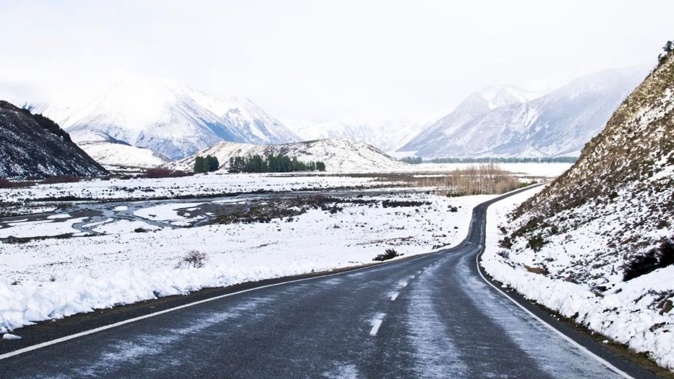
Meteorologists are picking the potential for a blast of snow across parts of New Zealand next week – while a rare phenomenon now unfolding over Antarctica could spell more “active weather” later in August.
A low-pressure system moving in from the Tasman Sea is forecast to collide with cold air blowing up from the Southern Ocean - bringing the possibility of snow on Monday and Tuesday.
MetService forecaster John Law said the risk for heaviest snow looked to be in the southern Canterbury High Country and northern parts of inland Otago, at elevations of 800m and possibly lower levels.
“So really, it’s a concern for some of those higher mountain passes, as we go through Monday and toward Tuesday.”
Just how significant the event proved to be would become clearer over the weekend, when MetService would be in a better position to issue warnings.
WeatherWatch described the picture for next week as “complicated”.
“Yes, some modelling has indicated snow to low levels – but other updates have backed off from this,” the company reported.
“At this early stage, with such a messy setup, it’s wise to be cautious – and we’re being fairly conservative still for our outlook next week.”
Niwa forecaster Chris Brandolino said just how strong the low became - and how quickly it developed - would be “critical”.
“It’s also about whether we get enough cold air yanked into this system, so that rain falls as snow.”
A decent dump could be a boon for hydro dams and ski areas that have been largely deprived of precipitation this season. Some South Island alpine spots had received just half their long-term average of snow amid abnormally warmer and drier winter weather.
“If we get snow next week, that could be good news for skiers, but it could be quite impactful for others who are travelling – and if it’s heavy, wet snow, there could be implications for infrastructure,” Brandolino said.
The weather system was forecast to be followed by another settled period of high pressure for the country.
In the background, meanwhile, forecasters were monitoring a rare “sudden stratospheric warming” event taking place over the South Pole.
This effect had the potential to mess with the polar vortex - the ring of stormy and freezing weather that encircles Antarctica - which was strongest at this time of year.
Such events were rare in the Southern Hemisphere, with only three - in 2002, 2010 and 2019 - recorded in the satellite era.
The 2002 event coincided with New Zealand’s coldest October in 20 years, with below-average temperatures covering much of the country.
While it wasn’t yet clear how strong this one would be, Brandolino said we could expect some influence from it over the coming weeks.
The second half of August was looking to bring “more active and unsettled” weather, in response to warming over the pole sending potentially significant low pressure over the Southern Ocean, he said.
Yet it remained to be seen how that would interact with a La Nina climate pattern now developing, against a background of global climate change.
“We have these compounding drivers competing for the steering wheel of our climate, and it will be interesting to see what happens as we go toward spring: a period when there’s wild swings in weather,” Brandolino said.
“We could be looking at a particularly bumpy rollercoaster ride.”
Jamie Morton is a specialist in science and environmental reporting. He joined the Herald in 2011 and writes about everything from conservation and climate change to natural hazards and new technology.
Take your Radio, Podcasts and Music with you









